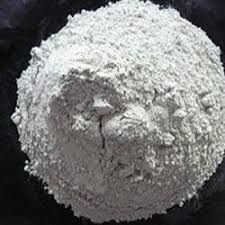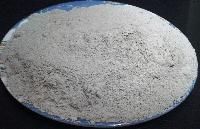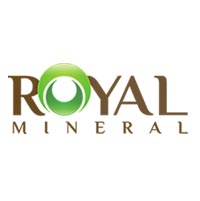
granulated blast furnace
Get Price Quote
is formed by quenching molten slag in water to form sand-sized particles of glass. The disordered structure of this glass gives the material moderate hydraulic cementitious properties when very finely ground into granulated blast furnace slag, but if it can access free lime, the granulated blast furnace slag develops strong hydraulic cementitious properties.

granulated blast furnace
2,600 Per Ton
5000 Ton (MOQ)
Granulated Blast Furnace Slag or GBFSis the residue of combustion in the furnace of the steel refining process. It is obtained by quenching molten iron slag from a blast furnace in water or steam, to produce a glassy, granular product that is then dried and ground into a fine powder. GGBFS or Ground Granulated Blast Furnace Slag is formed when GBFS is further processed or ground using conventional cement clinker grinding technology. Uses and Benefits of GBFSGGBFS Uses : �· GGBFS or GBFS is the most used raw material in cement industry to make slag cement. �· Lightweight fill �· Raw material for the manufacture of glass �· GBFS can be used as a substitute for sand in building materials �· GGBFS can be used as a replacement for Portland cement Benefits : �· Reduced chloride permeability �· Improved resistance to sulphate attack �· Reduced heat of hydration in mass concrete �· Better workability �· Environmental friendly �· Improved compressive and flexural strength �· Reduced alkali-silica reaction �· Less bleeding �· Long slump retention �· Better reflectance �· Greater durability and thermal resistance �· Brighter color and reduced electricity
Best Deals from Granulated Blast Furnace

granulated blast furnace
Get Price Quote
Ground-granulated blast-furnace slag (GGBS or GGBFS) is obtained by quenching molten iron slag (a by-product of iron and steel-making) from a blast furnace in water or steam, to produce a glassy, granular product that is then dried and ground into a fine powder.

granulated blast furnace
Get Price Quote
Granulated Blast Furnace Slag is obtained by rapidly chilling (quenching) the molten ash from the furnace with the help of water. During this process, the slag gets fragmented and transformed into amorphous granules (glass), meeting the requirement of IS 12089:1987 (manufacturing specification for granulated slag used in Portland Slag Cement). The granulated slag is ground to desired fineness for producing GGBS. The chemical composition of JSW’s GGBS contributes to the production of superior cement. Over the period of time, its load-bearing properties continue to increase as it absorbs surplus lime released during hydration to form more calcium silicate hydrates. These hydrates add to the strength of the cement.

granulated blast furnace
Get Price Quote
The Ground Granulated Blast Furnace Slag (GGBSGGBFS) is a type of eco-friendly green building material and high quality secondary cementitious material for concrete and cement. It is recognized as one of the best secondary cementations material for building high durable concrete stricture in the world today! GGBS has taken over top place of high performance cement and concrete mineral additives with its unique characteristics of hydration, low-price raw material. GGBS is obtained by quenching molten iron blast furnace slag (a by- product of iron and steel making) in water or steam. It is then further grounded into the desired fineness in terms of the required particle size distribution. The main components of blast furnace slag are CaO (30-50%), SiO2 (28-38%), Al2O3 (8-24%), and MgO (1-18%). The other important aspect of GGBS is its superiority in concrete durability which extends the lifespan of buildings from fifty years to a hundred years.

granulated blast furnace
Get Price Quote
granulated blast furnace, Ground Granulated Blast Furnace Slag, Copper Slag

granulated blast furnace
800 - 3,200 Per MT
granulated blast furnace, cenosphere, Bauxite, Sodium Bentonite

granulated blast furnace
Get Price Quote
granulated blast furnace, Sodium Monochloro Acetate